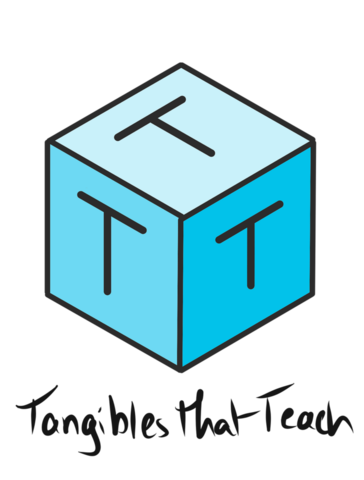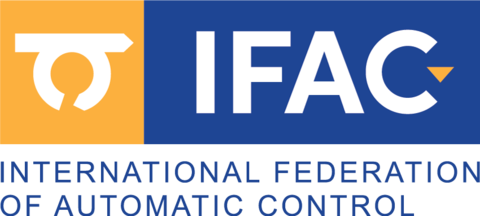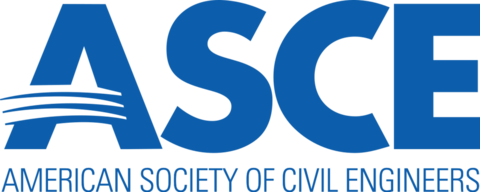Attention to All Workshop Participants
After you have registered for workshop(s) on PaperPlaza, please locate the appropriate Contact Organizer buttons below and forward them your registration confirmation with your full name and preferred email contact information. Your organizer will then contact you with further workshop details and how to access their workshop.
The ACC will offer workshops addressing current and future topics in automatic control from experts in academia and industry. The workshops at ACC 2021 will take place online prior to the conference on Monday May 24.
Conference registrants can sign up for the workshops directly through the registration site. For additional information about Workshops, please contact Workshops Chair, Mike Borrello (maborrello@roadrunner.com). Please note that workshops are subject to cancellation at the discretion of the organizers due to lack of registrants. Organizers and the chair will do their best to inform workshop registrants of cancellations, but please check the Workshops page at TBD often for current status.
Workshop Details
- Half-day workshops - (8:30 am – 12:30 pm EST)
Workshop Registration Fees
- Member/non-member - $120
- Students/Retirees - $20
Half-day workshops (8:30 am – 12:30 pm EST)
- W1: The promises of automation and artificial intelligence in the (post) crisis of COVID-19 (107)
- W2: Cognition and Learning in Control Theory (0433)
- W3: Advanced big data analytics for control performance assessment in Industry 4.0 era
Half-day workshops (1:30 pm – 5:30 pm EST)
- W4: Smooth Fuzzy Models for Dimension Reduction in Data Driven Systems (109)
- W5: Secure State Estimation and Control of Networked Systems: An Unknown Input Observer Approach (0242)
Full-day workshops (8:30 am – 5:30 pm EST)
- W6: Workshop on Recent Advancement of Human Autonomy Interaction and Integration (0689)
- W7: Practical Methods for Real World Control Systems (0197)
- W8: Control of Distributions: Theory and Applications (0126) - ACC 2021 Workshop: Control of Distributions (acc2021-control-of-distributions.github.io)
- W9: Neurotechnologies and closed-loop control of neurodynamics (0099)
- W10: Nonlinear Model-Based Process Control (0044)
Full-day workshop (8:30 am – 8:30 pm EST)
- W11: Fielding Legged Robotics off the Beaten Path (0627)
May 24, 2021
- Workshop
W10: Nonlinear Model-Based Process Control (0044)
― EDT - Workshop
W11: Fielding Legged Robotics off the Beaten Path (0627)
― EDT - Workshop
W1: The promises of automation and artificial intelligence in the (post) crisis of COVID-19 (107)
― EDT - Workshop
W2: Cognition and Learning in Control Theory (0433)
― EDT - Workshop
W3: Advanced big data analytics for control performance assessment in Industry 4.0 era (0019)
― EDT - Workshop
W6: Workshop on Recent Advancement of Human Autonomy Interaction and Integration (0689)
― EDT - Workshop
W7: Practical Methods for Real World Control Systems (0197)
― EDT - Workshop
W8: Control of Distributions: Theory and Applications (0126)
― EDT - Workshop
W9: Neurotechnologies and closed-loop control of neurodynamics (0099)
― EDT - Workshop
W4: Smooth Fuzzy Models for Dimension Reduction in Data Driven Systems (109)
― EDT - Workshop
W5: Secure State Estimation and Control of Networked Systems: An Unknown Input Observer Approach (0242)
― EDT
May 29, 2021
- Workshop
IFAC Girls in Control Workshop - Hindi (5/29)
― EDT - Workshop
IFAC Girls in Control Workshop - French (5/29)
― EDT - Workshop
IFAC Girls in Control Workshop - Japanese (5/29)
― EDT - Workshop
IFAC Girls in Control Workshop - Russian (5/29)
― EDT
May 30, 2021
- Workshop
IFAC Girls in Control Workshop - English (5/30)
― EDT
Jun 1, 2021
- Workshop
IFAC Girls in Control Workshop - Romanian (6/1)
― EDT
Workshops
Presenter: Ebrahim Navid Sadjadi, University of Carlos III in Madrid
The objective of this half-day workshop is to cover the long term consequences of the shutdown of businesses imposed by the government on the growth of artificial intelligence and automation in the industries. The opportunities of growth in the field will impact on the education plans of the electrical engineering departments and the expected trajectory in the academic life of the students as well as the future goals of the researchers. After the emergence of the covid-19 pandemic, since, the contagion rate is so high and there is not known vaccine for the pandemic, the governments have imposed various restriction and highly urged the citizens to uphold the social distance to reduce the risk of infection. Consequently, the works have been changed to get done remotely, and the meetings have been recommended to become online. The recent practice of distant working also has impacted on the running policy of the universities and the educational organizations and the classes have been shifted toward the virtual meetings, remote instructions and distance mentoring. Therefore, from one hand, the faculty members and teachers needed to come over the new scheme of distant teaching and mentoring, and from the other hand, the students required to adopt to the skills of using new technologies in addition to the learning the contents of the courses, plus the difficulties in dislocation from the dormitories within the semester. Hence, as a result of the resort of the governments, businesses and universities to the internet based remedies, a huge interest in the digitalization of businesses and smartization of life style is emerged, with the wider adoption of information technology (IT) based techniques and connectivity based solutions. Although, we wish the impacts of COVID-19 get damped and it leaves just temporary disruptions on the societies, however, it is estimated to entail the broader impacts and would change the common practices of living and making business; such that the return to the normal times will be just partially possible and the new normality will be different to the past normality. In the current circumstances that governments, businesses and universities have decided to prioritize the remote working plans for the employees, the electrical engineering departments can take the opportunity and devise the appropriate plans for the preparation of the students for the job market through embedding the required digitalization and internet based working skills and new course development. The higher attention to the automation of industries and artificial intelligence skills will highly impact on the career planning of the students to pivot on the proper directions. Therefore, the novelty in this half-day workshop is the comprehensive coverage of the global impact of the pandemic on the growth of the automation and artificial intelligence from the different aspects of businesses demands of digitalization and smartization, the impact on the future educational programming and the carrier planning of the students for tomorrow.
For up-to-date information regarding this workshop, please link to The promises of automation and artificial intelligence in the (post) crisis of COVID-19
Schedule
- Introduction of the marketing theory and technology management
- Logic of marketing
- Business models
- Dominant logic of marketing
- Value delivery, value co-creation, value capture
- Impact of coronavirus on the change of business models
- Servitization of industries
- Smartization of industries
- Digitalization and the impact on the businesses and societies
- Impact of acceleration of digitalization in the businesses
- Impacts on the internal management and role of artificial intelligent
- Impacts on the external affairs of businesses and customer relationship management
- Opportunities of technology in the market of tomorrow
- Multi-agents and robotics
- Big data, social networks, e-commerce, mcommerce
- Robotics and autonomous agents
- Jobs that technology will create
- Future job positions on the artificial intelligence
- Future job positions on automation
- Business objectives of electrical engineering departments
- Continuity of education
- New curriculum planning
- AI based innovation in learning techniques
- Some challenging problems and concluding remarks
Organizer: Aranya Chakrabortty, North Carolina State University, Raleigh, NC
The objective of this workshop is to start a dialogue on how cognitive science and learning theory can benefit control theory and vice versa. We intend to have a clear understanding of why the value of data has traditionally been under-utilized and under-emphasized in the controls community, what new dimensions can control theory gain from data science, machine learning, neural networks, and cognition and psychology, and what primary analytical and experimental tools are needed to make this marriage more successful. A group of distinguished control theorists have been invited working in various aspects and applications of data-driven algorithms to give talks on their recent research findings on this subject. The discussions will span the underlying fundamentals in control, optimization, state estimation, system identification, inferencing, and learning with applications ranging from power grids, transportation, and smart cities. The importance of security and privacy of data in each of these domains, and their impact on public benefit will be emphasized.
Neuro-Cognitive Science Inspired Directions in Learning for Control
Pramod P. Khargonekar
Abstract: We will discuss some selected topics from neuroscience and cognitive science that hold potential for future research directions in learning for control. The main motivation is that human brain has very impressive abilities to perceive, learn and make decisions and deal with uncertainty, environmental changes, and achieve goals. In recent decades, a great deal of progress has been made in both neuroscience and cognitive science in these areas and they have had large influences on modern machine learning. First half of the presentation will begin with a very brief summary of the connectionist vs symbolic approaches to human cognition. Next, we will highlight key elements of cognition: perception, attention, memory, problem solving, and knowledge representation, drawing connections to recent breakthrough advances in deep learning and reinforcement learning. We will also highlight predictive brain hypothesis which bears very strong connections to estimation and filtering in systems theory. Where applicable, we will speculate on the possible implications for control architectures and algorithms. In the second half of the presentation, we will discuss some recent results from our work with Deepan Muthirayan on the (external) memory augmented neural adaptive controllers and meta-learning for control. These results point the way towards new control architectures and algorithms for enabling new capabilities.
Fast Reinforcement Learning Control using Decomposition and Hierarchical Approximation
Jemin George and He Bai
Abstract: Designing the optimal linear quadratic regulator (LQR) for a large-scale multiagent system (MAS) is time-consuming since it involves solving a large-size matrix Riccati equation. The situation is further exasperated when the design needs to be done in a model-free way using schemes such as reinforcement learning (RL). To reduce this computational complexity, in this talk we will present a way to decompose the large-scale LQR design problem into multiple sets of smaller-size LQR design problems. Considering the objective function to be specified over an undirected graph, we will cast the decomposition as a graph clustering problem. The graph is decomposed into two parts, one consisting of multiple decoupled subgroups of connected components, and the other containing edges that connect the different subgroups. Accordingly, the resulting controller has a hierarchical structure, consisting of two components. The first component optimizes the performance of each decoupled subgroup by solving the smaller-size LQR design problem in a model-free way using an algorithm. The second component accounts for the objective coupling different subgroups, which is achieved by solving a least squares problem in one shot. Although suboptimal, the hierarchical controller adheres to a particular structure as specified by the inter-agent coupling in the objective function and by the decomposition strategy. Mathematical formulations will be established to find a decomposition that minimizes required communication
links or reduces the optimality gap. Numerical simulations, including a video demo of multi-agent target-tracking, will be provided to highlight the pros and cons of the proposed designs.
Robust Guarantees for Perception-Based Control
Nikolai Matni
Abstract: Motivated by vision-based control of autonomous systems, we consider the problem of controlling a known linear dynamical system for which partial state information, such as vehicle position, can only be extracted from high-dimensional data, such as an image. Our approach is to learn a perception map from high-dimensional data to partial-state observation, and its corresponding error profile, and to then design a robust controller and corresponding safe set over which this error profile is provably valid. We show that this can be accomplished by integrating the learned perception map and error model into a novel robust control synthesis procedure that results in a perception-based control loop with favorable invariance and generalization properties. Throughout we emphasize the importance of integrating robust learning (to characterize uncertainty in the learned perception map) and robust control (to mitigate the effects of this uncertainty) when designing learning-enabled control systems. Finally, we illustrate the usefulness of our approach through experimental validation on simulation and hardware platforms.
Closed-loop On-off Adversarially Robust Reinforcement Learning
Kyriakos Vamvoudakis
Abstract: With the advent of the efficient integration between communications, computation, and control, there is no doubt that autonomous technologies with reinforcement learning (RL) mechanisms will dominate future systems providing a new source of revenue. But the increasing potential of threats exposes the need for new design principles to increase the resilience of autonomous systems that use RL-based agents for control. Given this projected growth, it is a rare and critical opportunity for the RL industry and defense manufacturers to be ahead of adversaries in understanding how AI/machine learning models can be exploited in order to develop safer next-gen technologies. In this presentation, we will show a closed-loop \on-o_" adversarial RL framework that will maintain nominal performance in the absence of attacks, and will be robust to physically plausible attacks, i.e., white-box attacks, as well as black-box attacks where access to gradients is not feasible, in terms of data-driven controllability and observability, while guaranteeing closed-loop system stability, robustness, and safety. Current black-box and white-box attack strategies do not apply to RL-based control systems, require pre-training, and can be easily defended by existing defense mechanisms. We will then extend the adversarial surface of the RL mechanism, and by the time an adversary discovers vulnerabilities, the closed-loop RL that is responsible for the safe, efficient, and effective control operation, will have changed its surface area so that another exploit against that vulnerability will be infective. We will show cases with unavailable training data and with two threat models: action manipulation and observation manipulation.
Psychology-Driven Bayesian Models for Distributed Cognitive Control
Aranya Chakrabortty
Abstract: Response inhibition is an important act of control in many domains of psychology and neuroscience. The driving goal of response inhibition is to enable subjects inhibiting an ongoing action in response to a stop signal. Performance of the subjects in this stop-signal task is understood as a race between a \go process" that underlies the action and a \stop process" that inhibits the action. Responses are inhibited if the stop process finishes before the go process. This talk will cover the fundamental concepts of these human cognition models in the context of distributed control, and discuss how response inhibition can be used to develop efficient control laws by modeling the distributed controllers as proxies of human subjects. We will start with the classical response inhibition model introduced by Logan and Cowan (1984), followed by the more recent models by Logan and Van Zandt (2014) and Bayesian models that assume each controller is a stochastic accumulator governed by a diffusion process. The talk will conclude by highlighting the applications of these cognitive models for distributed control of large, complex and spatially distributed human-in-the-loop cyber-physical systems.
A panel session will be held at the end of the workshop
Presenters: Dr Paweł D. Domański, Warsaw University of Technology Institute of Control and Computation Engineering, Warsaw, Poland, Prof. YangQuan Chen, Dept. of Mechanical Engineering, School of Engineering, University of California, Merced
Nowadays the industry is witnessing winds of change. The era of Industry 4.0 transformation approaches. The issues of product throughput maximization, increased environmental protection and efficient energy management that have been pushing systems towards their technological constraints are not enough. A modern plant has to fulfill varying stringent regulations to operate at the edge of technological limitations. It should be accompanied by production horizontal and vertical integration, simulations, autonomous operation and flexibility. Most of these paradigms require the backbone of control engineering technologies and cannot exist without a properly designed and maintained control system. Due to such industrial demands, high control system performance must be closely coupled with the task of an advanced data analytics.
Process improvement is the main raison d'être for control systems. The relationship is straightforward. Better control causes higher performance. Despite this clear relation and common understanding of the fact, the majority of the industrial loops is neither well-tuned nor properly designed. Control engineers require tools and indexes that would measure how good the control system is. Moreover, they require suggestions for what should be done to improve existing poor situation. The research is ongoing. Its importance did not decrease. During fifty years of the interest several different approaches have been investigated, like data driven or model-based approaches defined using different domains. Simultaneously, as new control strategies have emerged, according assessment approaches have developed as well. Almost each control strategy, starting from SISO PID loops up to advanced control predictive and adaptive algorithms, has been addressed in the research and specific methodologies have been proposed.
Big data perspective poses a new challenge in the CPA data analytics. Advanced statistical and fractional-order data-driven methods allow to incorporate multi-criteria decision support into the assessment task. It has to be noted that CPA task has been initiated by industry, is being done for industry and is perpetually validated by industry.
This workshop will prepare our ACC2021 audience with
- Control Performance Assessment methods,
- Industrial perspective of the CPA,
- Control Performance Study as a CPA application case.
Expected learning outcomes:
- Basic knowledge about Control performance task and its positioning within industrial perspective
- Advanced statistical approaches, especially focused on the detection of outliers and anomalies.
- Fractional order approach revealing new perspectives in advanced big data analytics for process control performance assessment.
- Ability to use advanced methods in the industrial control system life-cycle Control Performance Study.
Intended audience: Graduate students, postdocs, engineers and faculty members dealing with complex process control and monitoring tasks.
Suggested prerequisite knowledge of the audience
- Basic knowledge of signals and systems, classical control system (Control-I).
- PID control tuning, MPC control, control system performance monitoring
- (optional) edge computing, deep learning
Schedule
- Introduction to the Tutorial Workshop (Paweł D. Domański)
- Review of the CPA task and algorithms (Paweł D. Domański)
- Advanced statistical data-driven analytical tools – outliers and anomalies (Paweł D. Domański and YangQuan Chen)
- Coffee break and discussion.
- Advanced big-data fractional order signal processing approach (YangQuan Chen)
- Control Performance Study as a CPA application case in process industry (Paweł D. Domański)
- Discussions.
Half-day workshops (1:30 pm – 5:30 pm EST)
For further, updated information on this workshop please visit Advanced big data analytics for control performance assessment in Industry 4.0 era.
Additionally, for workshop 11, can you please add the following text at the bottom of the description below the intended audience section. This also includes an embedded link.
For further details and updated information please visit our workshop homepage
Presenters: Ebrahim Navid Sadjadi, University of Carlos III in Madrid, Mohammad Bagher Menhaj, Amirkabir University of Technology, Iran
The objective of this half-day workshop is to cover the state-of-the-art in modeling and analysis of the fuzzy models for dimension reduction of the systems represented by their input-output data. During the last years, we have witnessed major successes of fuzzy logic systems in the academia and industries; from the analysis of data of the customers in online marketing, to fast detection of diseases like cancer, classification of the complex images, and generation of captions for the images in the personalized media of the incomplete and noisy information. In many applications, fuzzy models could outperform all the existing machine learning and model-based control methods. Hence, they are one of the few areas that receive on-going interest of the researchers and engineers. Although fuzzy models have been employed for a long time so far, however, the recent research in the fuzzy systems demonstrate that some kinds of fuzzy compositions can enlarge the design space into the higher dimensions through the Fourier expansion of the membership functions and thereby, facilitate the frequency analysis and modeling of the nonlinear system with the fuzzy models. Frequency analysis of the fuzzy models could facilitate the modeling and analysis of the nonlinear systems in the different aspects. First is the dedication of the sufficient number of rules for the fuzzy models, which avoids making the fuzzy structure complicated beyond what is really required. The contribution in this area could facilitate the understanding, utilization and tuning of the fuzzy models, plus improvement in the performance of the consequent algorithms. The second is the ability to handle the systems disturbances and noises soft and smoothly. The increase of the system robustness will facilitate the operation of the industrial processes inside their margins and respect to the operational limits. The third aspect is the ability to perform on-line and fast processing and decision making tasks in the compressed space, considering the computational complexities of the data driven processes. Hence, the purpose of providing this workshop is to give a detailed introduction to the recent developments in the fuzzy systems for the researchers, graduate students and practitioners. The main focus of the course is on comprehensive study of the new achievements on the structural properties of fuzzy models with the smooth compositions for the dimension reduction. Therefore, the novelty in this half-day workshop is the comprehensive coverage of the state-of-the-art in the application of the smooth fuzzy models for dimension reduction of the data driven process with the special attention to the frequency analysis of the control systems, identification processes and the signal processing applications. We also will present some examples of the employment of the smooth fuzzy models in image processing and biomedical engineering.
Schedule
- Introduction of the fuzzy theories, algorithms, and implementation of fuzzy systems
- Fuzzy compositions
- Fuzzy relational equations
- Smooth TS fuzzy models
- Structural properties of the smooth fuzzy systems
- Approximation properties of the smooth fuzzy models
- Monotonicity of the smooth fuzzy models
- Stability of the smooth fuzzy systems
- Optimization based control of the smooth fuzzy systems
- Applications of the smooth fuzzy models and their properties
- Smooth fuzzy model identification
- Smooth fuzzy models for self-learning
- Some structural comparisons to the classical fuzzy approaches
- Application to the nonlinear systems (e.g. chemical processes, biomedical engineering, automotive industry, etc.)
- Analysis of the smooth fuzzy models in the frequency domain
- New architectures for the fuzzy model representation
- Two useful techniques for estimation of the sufficient number of fuzzy rules
- Applications to the image processing
- Some challenging problems and concluding remarks
Presenter: Dr. Stanisław H. Żak, Purdue University, West Lafayette, IN
In Networked Control System (NCS), control loops are closed through communication networks. A major challenge in the NCS design is the system security. In particular, the problems of unknown input errors and packet drops during the signal transmission need to be addressed. If unknown input errors and sparse packet drops are sparse, their estimation can be formulated as a sparse vector recovery problem. The recovered sparse error vector can then be used to estimate the state of the plant. The estimated state, in turn, is used to synthesize combined observer-controller compensator. Detection and monitoring of malicious packet drops in the transmitted control signals can be accomplished using unknown input observers (UIOs). A state observer, or just observer, for short, is a deterministic dynamical system that can generate an estimate of the plant’s states using that plant’s inputs and outputs. Observers are utilized to augment or replace sensors in a control system. The observer was first proposed and developed by Luenberger in the early sixties. The early observers require full knowledge of the inputs of the controlled plant. Observers that do not require full knowledge of the inputs have also been developed. The problem of designing observers for linear systems with both known and unknown inputs can be formulated as an unknown input observer (UIO) design problem. This problem was already studied by Basile and Marro in 1969. Since then, different UIO structures have been reported in the literature. One important application of UIOs of current interest is in secure state estimation of network control systems corrupted by malicious packet drops both in the communication between the plant sensors and the controller and that between the controller and the plant actuators. Another area of application of UIOs is in fault detection and isolation, which is also one of the topics of this workshop. We will present an unknown input estimator architecture that reconstructs sensor and actuator faults. In this workshop, we also discuss digital implementation of observers designed in the continuous-time (CT) domain. In particular, we show that the exact discretization does not negatively impact the existence of UIOs and in some cases can facilitate the construction of UIOs when they do not exist for the CT systems. One of the conditions for the existence of an UIO for a continuous-time (CT) linear time-invariant (LTI) system model is a matrix rank condition. In many cases, while the original CT plant does not satisfy the matrix rank condition for the existence of an UIO, its discretized model satisfies the matrix rank condition for the existence of a discrete-time UIO. We characterize a class of systems showing this continuous discrete UIO existence dichotomy. We show that if a CT system satisfies the matrix rank condition, then the exact discretization of it will (with the possible exception of a countable set of sampling times) satisfy the matrix rank condition. We show that for a controllable single input system, the exact discretization of it will (with the possible exception of a countable set of sampling times) satisfy the matrix rank condition, regardless of whether it holds for the original CT system. We also characterize a class of systems for which the matrix rank condition fails in the CT domain but holds in the discrete time (DT) domain. We test our proposed estimators on a CT nonlinear model of the inverted pendulum on a cart corrupted by unknown input and output errors. The CT linearized inverted pendulum on a cart model does not satisfy the matrix rank condition for the existence of an UIO but its discretized model does satisfy the discrete matrix rank condition. We also test the proposed architectures on the double inverted pendulum on a cart (DIPC). In both cases, we perform MATLAB-based animations. In this workshop, the theory, design, and applications of estimators for the states and unknown inputs will be presented in a tutorial fashion. The workshop targets practicing engineers and graduate students. The emphasis will be on design in order to show how uncertain system control theory fits into practical applications. This workshop should be accessible for anyone with a basic knowledge of linear systems at the undergraduate level. No prior knowledge of observers is assumed.
For up-to-date information regarding this workshop, please link to this Workshop on Secure State Estimation and Control of Networked Systems
User name: guest Password: acc2021
Schedule
- Uncertain System Modeling Examples
- Networked Control System (NCS) with sparse malicious packet drops
- Testbeds: Inverted pendulum on a cart and a double inverted pendulum on a cart (DIPC)
- Animations
- State Observation in Uncertain Systems
- Beginnings of the observer
- Unknown Input Observer (UIO) architectures
- Tools for UIO design
- Unknown Input Observer (UIO) Applications
- Reconstructing input fault signals (disturbances) using the UIO
- Detection of faults at the output sensors
- Observer-based fault detection and isolation
- Secure state estimation for Networked Control Systems with sparse malicious packet drops
- Simulation examples
- Wrap-up
Full-day workshops (8:30 am – 5:30 pm EST)
Presenters: Neera Jain, School of Mechanical Engineering, Purdue University, Changliu Liu, Robotics Institute, School of Computer Science, Carnegie Mellon University, Shaoshuai Mou, School of Aeronautics and Astronautics, Purdue University, Yue Wang, Department of Mechanical Engineering, Clemson University, Fumin Zhang, School of Electrical and Computer Engineering, Georgia Institute of Technology, Wenlong Zhang, The Polytechnic School, Ira A. Fulton Schools of Engineering, Arizona State University.
The goal for this workshop is to present recent advancement of human-autonomy interaction and integration. This session is sponsored by the technical committee on Manufacturing Automation and Robotic Control of IEEE CSS. This workshop is motivated by a healthy growth of the body of research in many areas related to systems and control, including but not limited to, design and verification of safe co-robots in an industrial environment, autonomous or assisted driving on highways, human on-the-loop control and monitoring of swarms of unmanned vehicles, and assist-as-needed control of wearable robotics. Canonical control systems design and analysis tools have found their way into solving a small subset of problems, but are still largely on a case-by-case basis. Research in this domain require a good balance between model-based methods and learning-based methods, and between fully autonomy and human guidance. Major challenges naturally arise in addressing the lack of first principles and proven mathematical models for human intentions and human behaviors. We have envisioned that the control community will play a more crucial role in human autonomy interaction and integration by taking on challenges including: joint decision making, verifiable safety, learning based adaptation, workload and comfort management, trust calibration and control. We aim to report recent research achievements and identify these relevant challenges, as well as a review for testbed and facilities for this domain of research. We have organized a full-day workshop on human robot interaction for ACC 2017. Since then, there have been significant advancements on human autonomy interaction and integration. The field of human robot interaction and cyber physical human systems is booming with several dedicated workshops and invited sessions appeared in major control and robotics conferences. The proposed ACC 2021 workshop will focus more on autonomous systems with human in/on the loop based on integration of classical control theories with recent progress in learning, human factor research, as well as ergonomic designs.
Intended Audience: We envision the session will be of interest to control theorists, robotics researchers, and computer scientists alike. Through these sessions, we have invited researchers from different backgrounds to discuss different approaches in addressing related problems. It is our hope that participants will draw inspirations from colleagues with different expertise, hence further their own quests. We believe this timely session proposal will be very much appealing to the general public of the conference.
For up-to-date information regarding this workshop, please link to this Workshop on Recent Advancement of Human Autonomy Interaction and Integration.
User name: guest - Password: acc2021
Schedule
Talk 1: Interactive Robotics through the Lens of Control Theory, Dorsa Sadigh
Talk 2: Design and verification of safe co-robots, Dr. Changliu Liu
Talk 3: Enabling human-aware automation: a dynamical systems perspective on human
Cognition, Dr. Neera Jain
Talk 4: Trust and Risk in Human-Robot Collaboration: Modeling, Control, and Learning Approaches, Yue Wang
Talk 5: Building Human-Robot Symbiosis for Intelligent Physical Assistance and Social
Interaction, Dr. Wenlong Zhang
Talk 6: Objective Learning from Sparse Human Inputs, Dr. Shaoshuai Mou
Talk 7: Learning and Predicting Human Intentions Through Interactions, Dr. Fumin Zhang
Presenters: Daniel Abramovitch, Agilent Technologies, Sean Andersson, Boston University and Craig Buhr, Mathworks
Rationale: The proverbial “gap” between control theory and practice has been discussed since the 1960s, but it shows no signs of being any smaller today than it was back then. Despite this, the growing ubiquity of powerful and inexpensive computation platforms, of sensors, actuators and small devices, the “Internet of Things”, of automated vehicles and quadcopter drones, means that there is an exploding application of control in the world. Any material that allows controls researchers to more readily apply their work and/or allows practitioners to improve their devices through best practices consistent with well understood theory, should be a good contribution to both the controls community and the users of control. This workshop is intended as a small but useful step in that direction.
Prerequisite skills (of participants): Undergraduate level knowledge of feedback systems, sampled data systems, and programming. An honest interest in being able to translate control theory into physical control systems.
Intended Audience: We believe that this workshop will be of great interest to three types of audience members:
- Academic researchers who are well versed in control theory but would like to learn more about issues practicing control engineers often encounter as well as techniques and methods often used outside of standard textbook solutions to enhance their students’ experience in the classroom and laboratory.
- Practicing engineers who work on physical control systems and products that use control with an interest in connecting their work to “best practices” motivated by theory.
- Students who may be interested in adding laboratory experiments to their research or want to know how to make what they have learned applicable in industry.
For each of these groups – and those that are somewhere in the intersection of them – this workshop will address the gap from both sides, so as to give the participant a more complete understanding of how it applies to their particular situation.
Topic overview: The general style for each topic will be to present the issue, discuss rational ways of thinking about a solution, and where possible, show a demo to illustrate the idea.
Schedule
- Overview, a.k.a. “Mind the Gap.”
- System Models and Characterizing Them with Measurements, or why it’s both important and annoying to be discrete
- Simple Controllers for Simple Models, or why so many controllers are PIDs, and why some are not Practical Loop Design, Or Why Most Open Loops Should Be an Integrator, and How to Get There Resonances, Anti-Resonances, Filtering, and Equalization Signal Detection, Sensors, Sample Rates, and Noise (Oh My!)
- Integrating in Feedforward Control
- Ask Your Doctor: Is State Space Right for You?
- Pick a Chip, Any Chip: Or why real-time programming is too important to leave to folks who only know programming
- Closing Thoughts/Discussion
A web page that holds the information from the brochure can be found here, and a PDF version of the workshop flyer can be found here. An invitation video is here.
Presenters: Efstathios Bakolas, Department of Aerospace Engineering and Engineering Mechanics, The University of Texas at Austin, Austin, TX, Yongxin Chen, School of Aerospace Engineering, Georgia Institute of Technology, Atlanta, GA, Abhishek Halder, Department of Applied Mathematics, University of California, Santa Cruz, CA, Panagiotis Tsiotras, School of Aerospace Engineering, Georgia Institute of Technology, Atlanta, GA
Feedback control has been ubiquitous because it can deal with uncertainty and improve system performance. However, traditionally, feedback has been used to control uncertainty in a rather indirect manner. Directly controlling the effect of uncertainty on a dynamical system implies the direct control of the future evolution of the distribution of the system trajectories, an infinite-dimensional, and often intractable problem. However, several recent advances have made it possible to control second and higher order moments of these trajectory distributions in a systematic and precise manner. This workshop will bring together several researchers working in the area of distributional control in order to promote the interchange of the latest ideas, and demonstrate how the theory can be applied in a variety of applications of interest to engineers and scientists.
Control of distributions, or population of states, arise across applications ranging from decentralized shaping of swarms, stochastic motion planning, and regulating neuronal ensembles for biomedical purposes. This is an emergent research direction in systems-control engineering situated at the confluence of contemporary topics in statistical physics and machine learning, such as the optimal mass transport and the Schrödinger bridge. While the latter topics have long histories, that they can be seen as particular instances of certain class of stochastic optimal control problems, is a rather recent realization. This class of stochastic optimal control problems asks for direct controller synthesis to steer distributions in the state space, and is atypical with respect to control literature in the following sense: classical stochastic optimal control focused on “control with uncertainties” while this new class calls for “control of uncertainties”. From this perspective, the recent theoretical and algorithmic strides made for the control of distributions, push the frontiers of stochastic control. With this context in mind, the proposed workshop is a timely effort to apprise the systems-control community about the current progress in this fast moving research field, and to catalyze the current research momentum to further the theory and applications in this area.
The proposed workshop will strike a balance between the theory and applications of distributional control. Its main goal is to bring together researchers across systems control engineering to inform about recent advances, put the different strands of progress in perspective to get a clearer view of the research landscape, and promote discussions and collaborations to pursue the exciting vistas ahead. Several topics that reflect the main philosophy behind controlling distributions will be discussed and summarized. In addition to the nine planned talks delivered by leading researchers in distributional control, the dedicated Q&A session in the afternoon will allow all participants to engage in lively discussions.
Target Audience: includes graduate students and researchers in control, robotics, machine learning, physicists and engineers working on the modeling and control of uncertain systems. The topics covered in this workshop will be particularly useful to students and researchers working on stochastic optimal control, stochastic model predictive control, and trajectory optimization problems for uncertain systems (e.g., autonomous robotic systems operating in dynamic environments The invited talks of this workshop will also be of interest to researchers working on uncertainty quantification and, in particular, its various applications to uncertain dynamical systems. The topics covered in this workshop will provide these researchers with unique insights into the ways that uncertainty and noise impact the propagation of the state distributions of subject to the trajectory-level dynamics.
Suggested Prerequisites: a basic knowledge of multivariable control of the depth covered in a standard graduate level class will be sufficient. Some familiarity with the stochastic differential equations would be beneficial, but not necessary. Finally, knowledge of the basic concepts and algorithmic tools from convex optimization and the theory of optimal mass transport would also be useful to better understand some of the proposed solution approaches for the control of distributions.
Schedule
Opening Remarks
Session 1: Aerospace and Robotics Applications
- Covariance Steering as a Tool for Planning in the Presence of Uncertainty
- Koopman Operator Approach to Optimal Control and Chance-Constrained Motion Planning
- for Systems with Parameter Uncertainty
- Distributional Control: From Robotics to Applied Physics and Backwards
Coffee Break
Session 2: Swarms and Ensemble Control
- Decentralized Control of Multi-Agent Systems using Local Density Feedback
- Moment-Based Ensemble Control using Aggregated Measurements
Lunch Break
Session 3: Data-Driven Design of Population Observers and Controllers
- Sample-based Population Observers
- Real-time Trajectory Generation
- Algorithms for Uncertain Dynamical Systems Using Covariance Steering
Coffee Break
Session 4: Nonlinear Regulation and Interpolation
- Finite Horizon Optimal Density Regulation for Nonlinear Systems
- Wasserstein Spline: Theory and Applications
Q&A and Discussions
Closing Remarks and Adjourn
Presenters: Erfan Nozari, Department of Mechanical Engineering, University of California at Riverside Fabio Pasqualetti, Department of Mechanical Engineering, University of California at Riverside and Sérgio Pequito, Delft Center for Systems & Control, Delft University of Technology
Recent years have witnessed an unprecedented demand within cognitive sciences (neuroscience, psychology, psychiatry, and beyond) for theoretical and computational tools from mathematics and engineering. This demand is evident, e.g., from the latest Technology Roadmap White Paper produced by the IEEE Brain Society on November 2019 titled \Future Neural Therapeutics: Closed-Loop Control of Neural Activity". There is now little doubt that these tools are critical to complement the classical, experimental and statistical methods in cognitive sciences and tackle the various outstanding problems related to our understanding of the brain and mind. The cross-disciplinary efforts needed to bridge between these fields and enable constructive dialogue between experts from traditionally distant domains are the main focus of this workshop and have tremendous potential to enhance translational research and contribute to various societal problems associated with neurocognitive health. This workshop is in absolute synergy not only with the BRAIN Initiative but also has a particular focus on neurotechnologies. Therefore, this workshop aims to “fill major gaps in our current knowledge and provide unprecedented opportunities for exploring exactly how the brain enables the human body to record, process, utilize, store, and retrieve vast quantities of information", and also develop the next generation of neurowearables and neurostimulators.
The past decade has witnessed an unprecedented and growing interest in interdisciplinary works that use the wealth of theories and tools in mathematics and engineering to solve outstanding problems in neuroscience. It is now widely believed that traditional experimentation and statistical analysis are not sufficient for solving the complex mysteries of the brain (the neural code, e.g.), but should rather be combined with rigorous and abstract mathematical analysis and engineering design [1]. Bridging the rather large gap between neuroscience and mathematics/engineering, however, involves great challenges such as differences in language and terminology, scientific training, methodological limitations, and publication practices, to name a few. It is therefore imperative to dedicate targeted effort and organization to address these challenges and, in doing so, scientific conferences hold a unique position. Among the various recent areas in computational and theoretical neuroscience, dynamical models have been proposed and increasingly sought to describe brain activity and ultimately develop systematically designed and theoretically informed intervention techniques to treat neurocognitive disorders such as Parkinson's disease, epilepsy, spinal cord injury, and major depressive disorder given the dynamical, uncertain, and large-scale nature of brain processes. Here, control theorists and engineers have the unique opportunity and capabilities to contribute to this important research effort demanded by the BRAIN Initiative. Indeed, the demand for these tools is evident from the latest Technology Roadmap White Paper produced by the IEEE Brain Society on November 2019 titled \Future Neural Therapeutics: Closed-Loop Control of Neural Activity".
The “Neurotechnologies and closed-loop control of neurodynamics" workshop will bring together researchers from different backgrounds to demonstrate how the theory of dynamical systems and control engineering successfully enables new insights in neuroscience and emerging neurotechnologies. More specifically, the scope of the talks will cover:
- mathematical modeling of neurodynamics at different spatio-temporal scales;
- theoretical and computational methods of analyzing the dynamics of these models and how they relate to behavior;
- state of the art neurotechnologies for sensing and actuation;
- the motor system, brain-machine interfaces, and rehabilitation;
- identification of pathological activity in models of neurodynamics and the design of closed-loop control strategies for mitigating them; and
- synchronization and synchronizability of global brain activity.
For up-to-date information regarding this workshop please link to https://sites.google.com/view/neurocontrol/home
Schedule
Topic 1. Brain modeling for control
Neuroscience experts: Dr. Danielle Bassett (University of Pennsylvania)
Control experts: Dr. ShiNung Ching (Washington University in St. Louis)
Topic 2. Epilepsy and seizure control
Neuroscience experts: Dr. Steven Schi_ (Pennsylvania State University)
Control experts: Dr. Sridevi Sarma (Johns Hopkins University)
Topic 3. Brain Machine Interfaces and motor control
Neuroscience experts: Dr. Cindy Chestek (University of Michigan)
Control experts: Dr. Maryam Shanechi (University of Southern California)
Presenter: R. Russell Rhinehart, Emeritus, Chemical Engineering, Oklahoma State University
This full-day workshop will be a practical guide for those considering the use of first principles
models for control of processes. First-principles models do not seek full rigor, and they are fully accepted in engineering design, process analysis, and learning. First principles models are phenomenological (mechanistic) and mathematically express a specific mechanism, as opposed to being generically empirical. But they might use empirical data to determine coefficient values. Fundamental control concepts will be revealed, and the participants should take away the ability to implement several of the simple and effective methods for either SISO or MIMO applications.
The workshop will cover SISO versions of Generic Model Control (with steady state models), which become easy-to-implement output-characterized PI control. Then move to Process-Model Based Control and Predictive Functional Control (with dynamic models). It will start with simple unconstrained versions, and progress to constrained nonanalytic applications and on-line model adaptation. Then the course will cover the use of nonlinear models in a MIMO, constraint-handling MBC structure. These are chosen for their utility within the process environment and because they represent the fundamentals of most approaches. All have been credibly demonstrated in real full-scale applications.
Course examples will represent diverse applications which should be understood by any engineering disciplines. Participants will receive course notes and software that provides exercises and access to code. Exercises and code can be implemented in any environment, but Excel/VBA will be used as in-workshop examples and exercises. Participants are invited to bring a computer with Excel version 2010 or higher for in-class exploration. Participants have permission to directly apply the provided software to their specific problems. The workshop material is an expansion of material and software on the companion web site www.r3eda.com.
Simulation applications will include automobile speed control, and pH control as nonlinear SISO examples and hot and cold mixing as a nonlinear 2x2 example. Any STEM graduate should be able to relate to the processes and issues.
Intended Audience: The workshop is designed for those needing to understand nonlinear control applications. This is a practical guide on the use of best practices from conventional methods, with
examples to illustrate the choices and techniques. Supporting theory will be addressed, but the take-away will be the ability to specify determine adequacy of a model, design a controller, and handle constraints. The intended audience includes engineering employees, students, and faculty who want to use nonlinear control techniques.
Prerequisite skills: Any undergraduate engineering or mathematics program should have provided the participant with an adequate experience in calculus, linear algebra, and computer
programming. The course will review essential topics that are commonly un-remembered from undergraduate courses – including first-principles modeling, and optimization.
Schedule
Session 1
- Concepts, Issues, Conventional Solutions
- Rational
- Block Diagram of Elements and Options for Each
- Models – Steady State and Dynamic
- Models – Obtaining, Sufficiency, Calculation Forward and Inverse
Break
Session 2
- SISO/MISO – GMC, PFC, PMBC
- Simulation Examples
- Constraints – Soft and Hard, Equal Concern Weighting
- SISO/MISO – with optimization solutions
- Simulation Examples
Lunch
Session 3
- Incremental Model Adjustment and Examples
- Measurement Validity and Data Reconciliation
- Steady State Identification and Examples
Break
Session 4
- MIMO – PMBC in MBC Structure (Horizon Predictive, Constraint Handling)
- Simulation Examples
Closing
Presenters: Mr. Jason Pusey, U.S. Army Combat Capabilities Development Command (CCDC),
Army Research Laboratory (ARL), Prof. Yan Gu, University of Massachusetts, Lowell MA, Prof. Ye Zhao, G. W. Woodruff School of Mechanical Engineering, Georgia Institute of Technology, Atlanta, GA
The primary purpose of this workshop is to discuss the challenges and requirements in control, dynamics, optimization, and system design for fielding legged robotics in real-world scenarios. These types of robotic platforms have an enormous potential for swaths of applications, particularly where mobility challenges limit the application of more traditional ground robots. We will use this workshop to present discussion pieces and foster conversation on the true challenges limiting the fielding of legged robots. The workshop will feature invited pioneers in the legged robotics community to discuss what they see as technical challenges limiting legged technology. Further, several speakers will feature live demonstrations of their hardware platforms, giving attendees in-person physical examples of these concepts in action. We will focus on the following topics with an eye on their application to legged robots:
- Controller: What kind of control is best suited for fielded applications? Periodic gaits are robust and efficient, but are they flexible enough to meet the challenging settings of applied legged robots? Foothold driven dynamic planning and balance requires significant computation, while also being generally less efficient than other more dynamic approaches.
- Planning: What kind of planning is required for locomotion? Should the balance state entirely drive the contact location, or should it only modify what is provided by a high level planner?
- Actuation: Hydraulic or electric? High gear reduction or direct drive? Low or high voltage? These are all important questions when designing legged robots, as both the power output and power consumption drive the total performance of the robot.
- Embodied Intelligence: What level of autonomy is actually needed for these robots to be useful enough for real world application? Is 1:1 sufficient, or must the operator be able to direct a team? What behaviors and elements are critical to automate, and what can be left to a remote operator?
- Simulation: What role can simulation play when designing both hardware and controllers for legged robots? What are the key elements required in designing a simulator to make it accurately capture the real world? How can we improve simulation to incorporate more machine learning techniques to increase the robustness and reactivity of the final product?
- Scaling: As robots are scaled up in size, they often face significant challenges with power supplies and actuation. Are there technologies that aren’t being used that could break this paradigm? Are there different critical components as the scale of the platform goes from small to large?
Additional specific questions we will pose then include: Where is the state of the art now in off road robotic locomotion? Where should the next generation legged robotic platforms evolve to? What technologies need to be advanced to support this evolution? What is constraining technology and how can we push the technology to the next level?
Topics of interest
- Feedback model based control design for dynamic locomotion
- Whole-body Control of Agile Locomotion
- Controller design of legged locomotion on dynamic platforms
- Computationally efficient trajectory optimization
- System design of advanced legged machines
- State estimation and sensor fusion
- Motion and path planning with intermittent contact
- Contact-rich decision-making and task planning
- Machine learning for estimation and control
Intended audience
The intended audience is academic, industry, and government R&D personnel who are interested in learning about the development of legged robot hardware, software, and autonomy. The research, technology, and hardware demos will be inspirational and provide motivation to students, scientists, engineers, component suppliers, and entrepreneurs to enter or expand into this very challenging field.




















